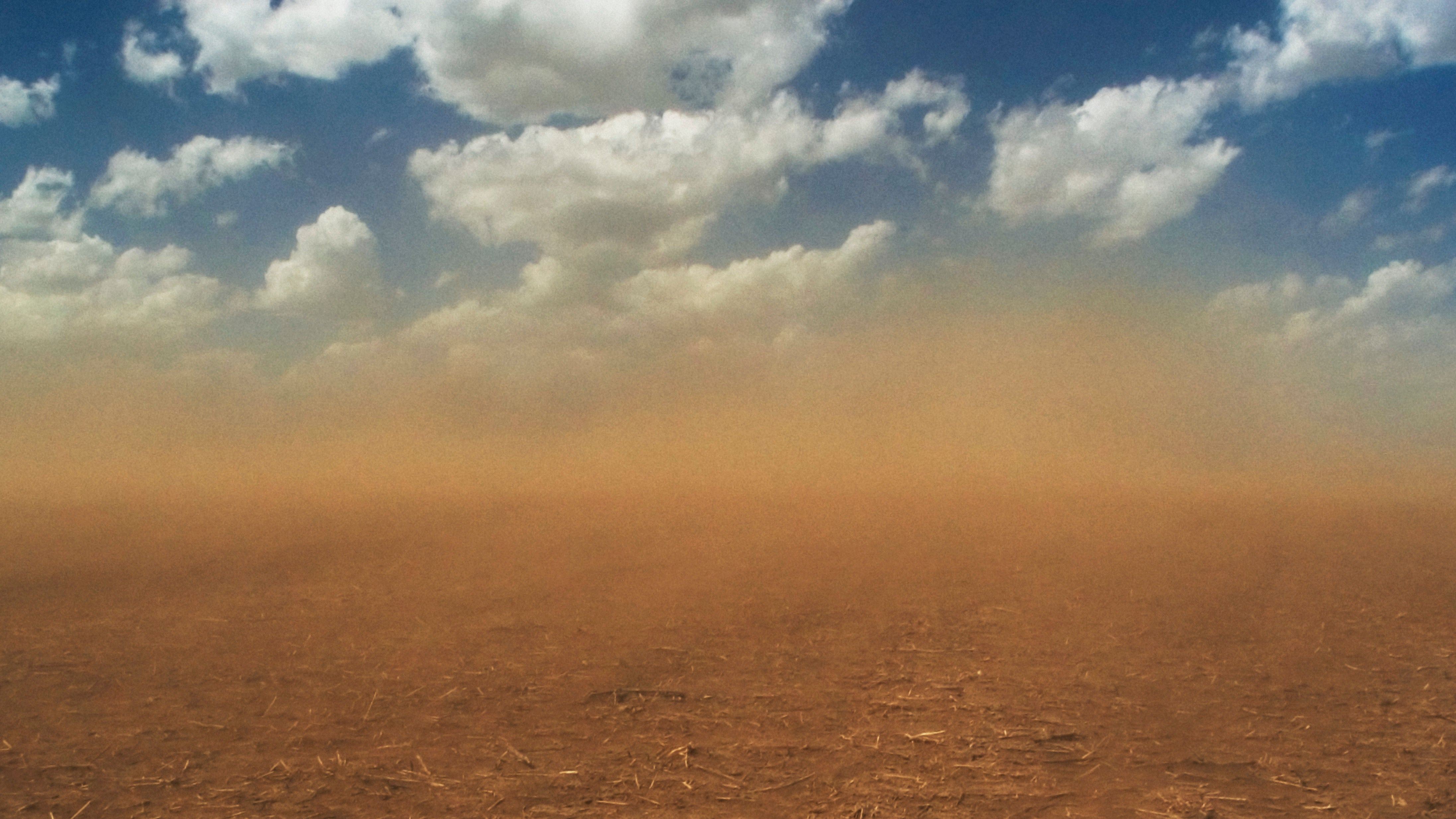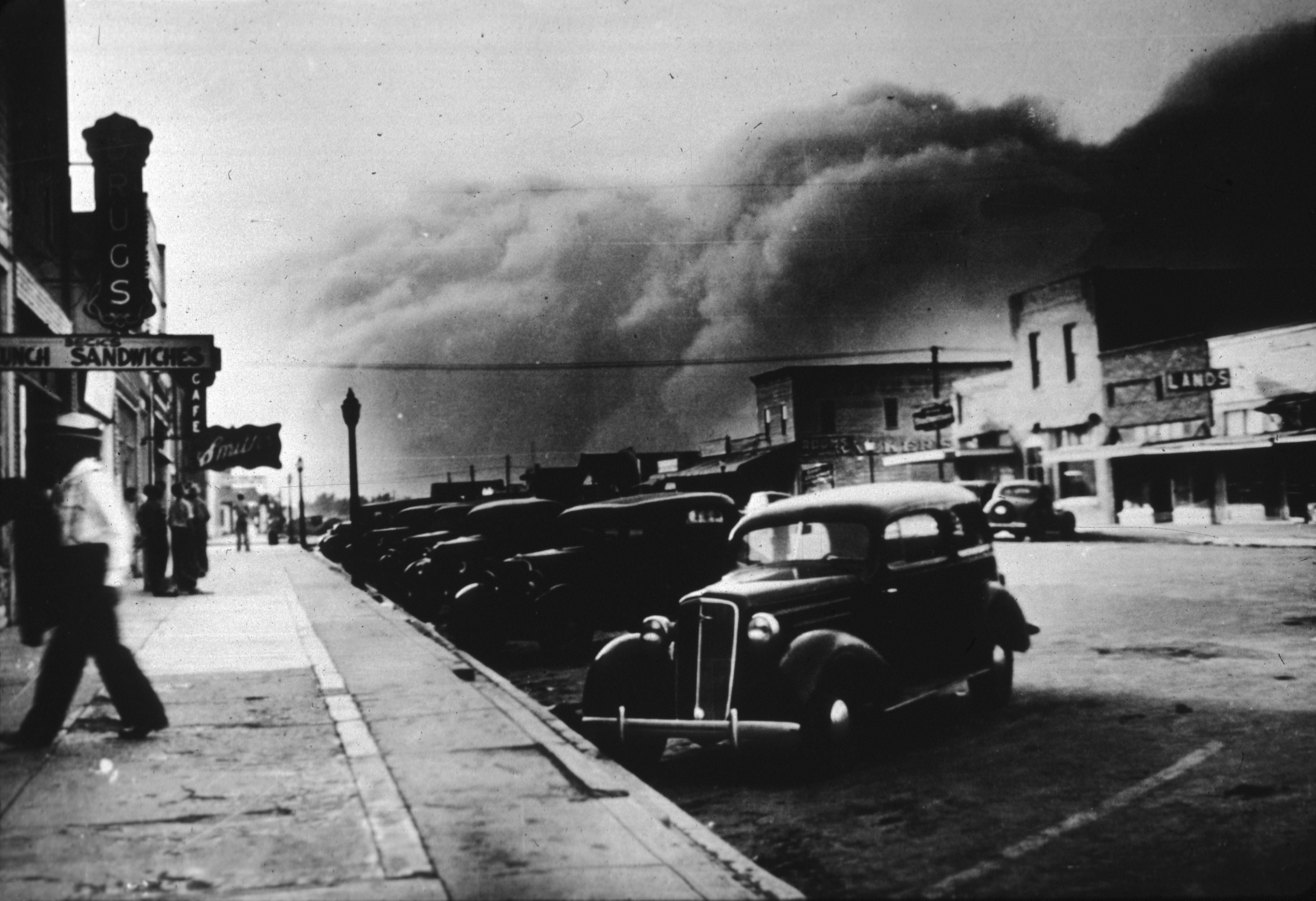You are using an out of date browser. It may not display this or other websites correctly.
You should upgrade or use an alternative browser.
You should upgrade or use an alternative browser.
White Privilege
- Thread starter HDRider
- Start date

Help Support CattleToday:
HDRider
Well-known member
Many of these late nineteenth and early twentieth century settlers lived by the superstition "rain follows the plow." Emigrants, land speculators, politicians and even some scientists believed that homesteading and agriculture would permanently affect the climate of the semi-arid Great Plains region, making it more conducive to farming.
This false belief was linked to Manifest Destiny—an attitude that Americans had a sacred duty to expand west. A series of wet years during the period created further misunderstanding of the region's ecology and led to the intensive cultivation of increasingly marginal lands that couldn't be reached by irrigation.

 www.history.com
www.history.com
This false belief was linked to Manifest Destiny—an attitude that Americans had a sacred duty to expand west. A series of wet years during the period created further misunderstanding of the region's ecology and led to the intensive cultivation of increasingly marginal lands that couldn't be reached by irrigation.

Dust Bowl: Causes, Definition & Years - HISTORY
The Dust Bowl refers to the drought-stricken southern plains of the United States, which suffered severe dust storms during the Great Depression of the 1930s.
callmefence
Keyboard cowboy
A drought blamed on farming..
....Red
It's kinda like global warming..it happens from time to time.
....Red
It's kinda like global warming..it happens from time to time.
HDRider
Well-known member
Causes
In 1930, weather patterns shifted over the Atlantic and Pacific oceans.1 The Pacific grew cooler than normal and the Atlantic warmer.The combination weakened and changed the direction of the jet stream. That air current carries moisture from the Gulf of Mexico up toward the Great Plains. It then dumps rain when it reaches the Rockies. This combination also creates tornadoes. When the jet stream moved south, the rain never reached the Great Plains
There were four waves of droughts, one right after another. They occurred in 1930-1931, 1934, 1936, and 1939-1940, but it felt like one long drought. The affected regions could not recover before the next one hit.
1930-1931:
The first drought ravaged 23 states in the Mississippi and Ohio river valleys. It reached as far east as the mid-Atlantic region and hit eight Southern states. Deflation during the Depression drove cotton prices down from $0.18 per pound in 1928 to $0.06 per pound in 1931.11 It cost farmers more to plant cotton than they could get selling it. Farmers could not produce enough food to eat.
Why Another Dust Bowl Is Likely
The Dust Bowl was a 10-year drought and heat wave that destroyed midwest crops in the 1930s. It worsened the Great Depression and could happen again.
callmefence
Keyboard cowboy
Why is this thread called "white privilege"??
greybeard
Well-known member
Dramatic topic lines tend to draw more attention than the ones like "Grazing droughted out? fields".
greybeard
Well-known member
Dramatic topic lines tend to draw more attention than the ones like "Grazing droughted out? fields".
(We just had our 10th consecutive daily rainfall a couple of hours ago but I haven't hooked up any plows in 2021)
My grandmother had nightmares about picking cotton and what she went thru growing up on a struggle farm.
callmefence
Keyboard cowboy
Somewhere around here I've got pictures of my grandfather and great uncles picking cotton out of the field that's right outside my current bedroom window.
That's what aggravates me about all this division. Not every one had slaves and stuff. My mothers family are Czech/ Bohemian and they had cotton. They worked their own fields and hired in a day labor.Somewhere around here I've got pictures of my grandfather and great uncles picking cotton out of the field that's right outside my current bedroom window.
Same things on the german side. We fled germany and were hunted down just like they jews.
greybeard
Well-known member
We were so poor growing up, we ate Ordinary K for breakfast and ate it with a fork to save milk and when my uncle put out his cigarette one day, my mother asked "Who turned off the heater?" 
(I and my siblings are the 1st generation in my family that DIDN'T pick cotton. My father share cropped some East Texas land in the early 30s that is now under Lake fork and most of his family traveled to West Texas' Nolan County to pick dry land cotton when it got ready at a different time than East Texas cotton. )
(I and my siblings are the 1st generation in my family that DIDN'T pick cotton. My father share cropped some East Texas land in the early 30s that is now under Lake fork and most of his family traveled to West Texas' Nolan County to pick dry land cotton when it got ready at a different time than East Texas cotton. )
callmefence
Keyboard cowboy
It's my understanding great great grandpa had a few slaves..... great grandpa just had 7 sons and some seasonal wetbacks. ...That's what aggravates me about all this division. Not every one had slaves and stuff. My mothers family are Czech/ Bohemian and they had cotton. They worked their own fields and hired in a day labor.
Same things on the german side. We fled germany and were hunted down just like they jews.
Lee VanRoss
Well-known member
- Joined
- Apr 26, 2020
- Messages
- 2,392
- Reaction score
- 2,682
I have one slave . You can't tell us apart. No one has ever seen us together.
Dave
Well-known member
When my Grandfather came to this country in 1910 he worked in PNW logging camps. He said they treated the pigs better than the men. The pigs got straw for bedding. The men had rough sawed lumber bunks. They had to gather ferns or limbs for a mattress. They worked from dawn to dusk 6 days a week. No slaves you were allowed to quit and draw your pay at any time. Of course then you would need to find another job. And that next job would have the same conditions. The only reason to move to another job was if they served better food. Working in very dangerous conditions if you got hurt you had to survive until quitting time because they didn't stop work to haul you to the doctor. If you got killed they just drug your body out of the way and continued work for the day. Shafer Bros Logging in the Grays Harbor area had a sign over their hiring office that read, "If you can't fly, don't light here." It is said that they averaged killing a man a day.
greybeard
Well-known member
I've heard stories that oil rig crews hid injured hands till after the crew reached their 6 month safety award date. Them new Red Wings and insulated coveralls were prized.
H&P?I've heard stories that oil rig crews hid injured hands till after the crew reached their 6 month safety award date. Them new Red Wings and insulated coveralls were prized.
Dave
Well-known member
I knew an old boy who was raised in a logging camp up on the northern end of the Olympic Peninsula. That was in the rail road logging days. The crew went out and in to camp on a speeder pulling cars. The school was located on the end of camp toward the woods. The last car pulled by the speeder would have the dead and injured on it. The school boys would bet on how many were on that car. He said nobody ever took zero. That was a losing bet.
I have seen it written that the old steam logging days was the closest thing to modern warfare. It is a whole lot safer now than it was then. But in '72 through '93 when I broke my back, I helped carry out the bodies of 3 dead guys. And another who was alive and talking to us while packing him out who died on the way to the hospital.
I have seen it written that the old steam logging days was the closest thing to modern warfare. It is a whole lot safer now than it was then. But in '72 through '93 when I broke my back, I helped carry out the bodies of 3 dead guys. And another who was alive and talking to us while packing him out who died on the way to the hospital.
Lucky_P
Well-known member
Good young friend up the hill runs a logging & sawmill operation. It's still dangerous business.
About 2 months ago, his partner had a tree fall on and and bugger up his foot & ankle... Henry had to cut the tree off of him. The next day, Henry was limbing up a tree he'd felled... limb under tension popped back and broke his tibia.
He had no medical insurance, and they only carry Workman's Comp on their one employee... because logging is so dangerous, and it's such a small pool... their WC premium is $9/hour; that on top of the $10-12/hr he already pays the employee. He was back at work way sooner than I would have been... but he's got bills to pay.
Was thinking about the 'white privilege' deal yesterday, while picking berries. I suspect that some of my Washington ancestors, back around GW's time may have owned some slaves, but none that I'm aware of any latter than that... most were just hardscrabble farmers (or outlaws!). My grandparents on both sides lost everything in the Great Depression, and were sharecroppers... but managed by scrimping and saving to put all their kids through college(first generation to go), and buy small farms. All my uncles served in WWII, and one was killed in combat. Were they more 'privileged' than black folks in south Alabama at the time? Yeah, without a doubt. But I have no guilt about 'white privilege'... nothing was handed to them, and my wife and I pretty much worked for everything we've got, as well.
About 2 months ago, his partner had a tree fall on and and bugger up his foot & ankle... Henry had to cut the tree off of him. The next day, Henry was limbing up a tree he'd felled... limb under tension popped back and broke his tibia.
He had no medical insurance, and they only carry Workman's Comp on their one employee... because logging is so dangerous, and it's such a small pool... their WC premium is $9/hour; that on top of the $10-12/hr he already pays the employee. He was back at work way sooner than I would have been... but he's got bills to pay.
Was thinking about the 'white privilege' deal yesterday, while picking berries. I suspect that some of my Washington ancestors, back around GW's time may have owned some slaves, but none that I'm aware of any latter than that... most were just hardscrabble farmers (or outlaws!). My grandparents on both sides lost everything in the Great Depression, and were sharecroppers... but managed by scrimping and saving to put all their kids through college(first generation to go), and buy small farms. All my uncles served in WWII, and one was killed in combat. Were they more 'privileged' than black folks in south Alabama at the time? Yeah, without a doubt. But I have no guilt about 'white privilege'... nothing was handed to them, and my wife and I pretty much worked for everything we've got, as well.
Similar threads
- Replies
- 3
- Views
- 1K